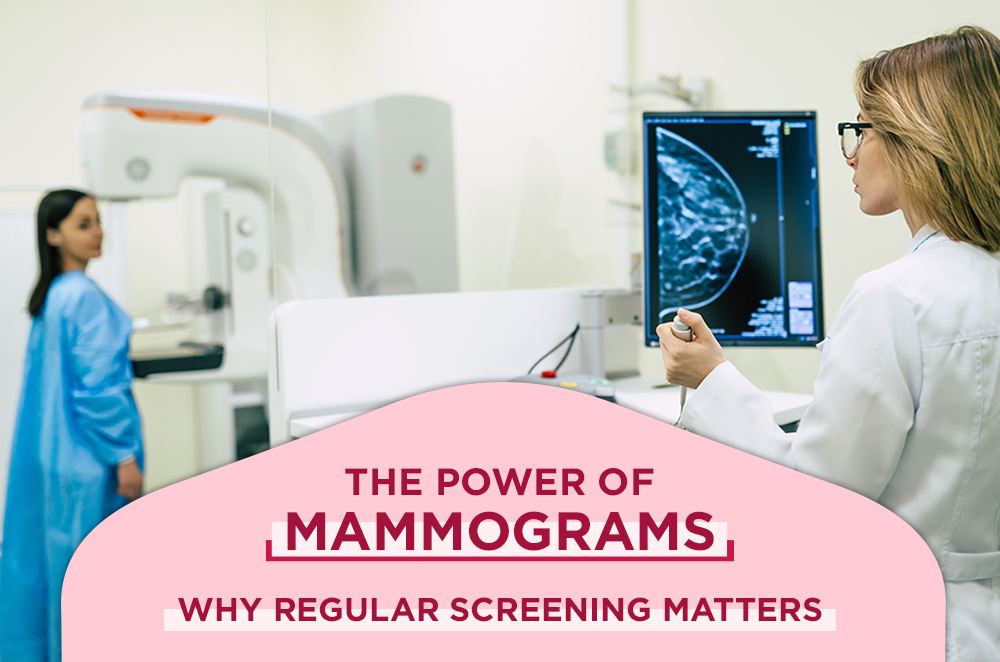Breast cancer affects millions of women around the world each year. The good news is that early detection can significantly improve the chances of successful treatment and long-term survival. One crucial tool in the fight against breast cancer is the mammogram. In this blog post, we’ll discover the lifesaving power of mammograms and why screening matters.
Early Detection Saves Lives
Prioritizing mammograms is vital because they can detect breast cancer at an early, treatable stage. Breast cancer is highly curable when detected in its early stages. According to the American Cancer Society, when breast cancer is detected early, and is in the localized stage, the 5-year relative survival rate is 99%. Early detection includes doing monthly breast self-exams and scheduling regular clinical breast exams and mammograms. Mammograms can identify tumors long before they are large enough to be felt during a physical examination. In fact, mammograms can detect abnormalities in the breast up to two years before they become palpable. This early detection can mean the difference between life and death for many women.
Improved Treatment Options
When breast cancer is detected early, treatment options are more diverse and less invasive. This often leads to better outcomes and a higher quality of life for those affected. In contrast, when breast cancer is diagnosed at an advanced stage, treatment becomes more challenging, aggressive, and less likely to result in a complete cure. Regular mammograms increase the likelihood of identifying cancer in its infancy, giving patients more treatment choices and a better chance for a full recovery.
Reduced Treatment Costs
Early detection not only improves the prognosis but can also reduce the financial burden of treatment. Treating advanced-stage breast cancer often involves more intensive therapies, surgeries, and medications, which can be considerably more expensive than early-stage treatment. By identifying cancer when it is small and localized, mammograms help to mitigate the economic impact of treatment on individuals and healthcare systems.
Empowerment Through Knowledge
Knowledge is power, and regular mammograms empower women by providing them with crucial information about their breast health. Mammograms are typically recommended for women over the age of 40, although individual screening guidelines may vary depending on risk factors and family history. While not all abnormalities detected through mammograms turn out to be cancer, they can still indicate other health concerns that need attention. Additionally, knowing your breast cancer risk and having a screening plan tailored to your needs can reduce anxiety and promote a sense of control over your health.
Promoting Early Detection for High-Risk Individuals
Some women are at higher risk of developing breast cancer due to factors such as family history or certain genetic mutations (e.g., BRCA1 and BRCA2). For these individuals, early and frequent mammograms, in conjunction with other screening methods, are even more critical. Detecting cancer in its earliest stages is essential for those with increased susceptibility to the disease.
It’s crucial for women to prioritize their breast health. By doing so, we can continue to make progress in the fight against breast cancer and ensure that more women survive and thrive. Regular mammograms, combined with breast self-exams and clinical breast exams, create a powerful defense against breast cancer. If you’d like to set up an appointment for a Mammogram or Breast Ultrasound, contact the McMahon Center for Breast Health, Imaging Services at 580.250.5846.
Resources:
https://www.nationalbreastcancer.org/early-detection-of-breast-cancer/
Disclaimer
The Comanche County Memorial Hospital website does not provide specific medical advice for individual cases. Comanche County Memorial Hospital does not endorse any medical or professional services obtained through information provided on this site, articles on the site or any links on this site.
Use of the information obtained by the Comanche County Memorial Hospital website does not replace medical advice given by a qualified medical provider to meet the medical needs of our readers or others.
While content is frequently updated, medical information changes quickly. Information may be out of date, and/or contain inaccuracies or typographical errors. For questions or concerns, please contact us at contact@ccmhhealth.com.

